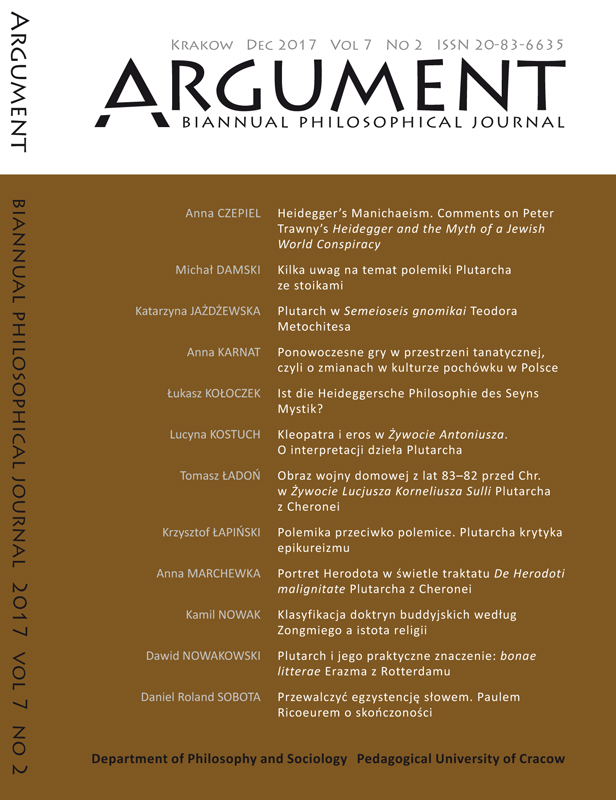Heidegger’s Manichaeism: Comments on Peter Trawny’s Heidegger and the myth of a Jewish world conspiracy
DOI:
https://doi.org/10.24917/20841043.7.2.10Keywords:
Manichaeism, anti-Semitism, ethics, political philosophy, Martin Heidegger, Peter TrawnyAbstract
Heidegger’s Manichaeism: Comments on Peter Trawny’s Heidegger and the myth of a Jewish world conspiracy. In the book Heidegger and the myth of a Jewish world conspiracy, Peter Trawny convincingly shows that anti-Semitism in Heidegger’s thought does not have the shape of the Nazi call for racial discrimination, but rather is a stereotypical and unfortunate element of Heidegger’s call for a transformation of thinking so that philosophy and the human attitude to life would be focused on Being itself (Seyn selbst) instead of beings (Seiendes). Despite the advantages of Trawny’s book, I think that Trawny unlawfully tries to demonstrate that anti-Semitism is the main ethical and political problem of Heideggerian philosophy, while in my opinion the main problem is Heidegger’s “being-historical Manichaeism” — a phenomenon which is only marginally evoked by Trawny. This Manichaeism brings Heidegger to criticize the values of human subjectivity, personality and social and economic self-security as the en-emies of Being. These views not only can have severe political collectivist implications, but — to put it in the terminology of Sein und Zeit — they also make Heidegger speak in the manner of the conservative variant of “idle talk” (Gerede) of “the they” (das Man).


